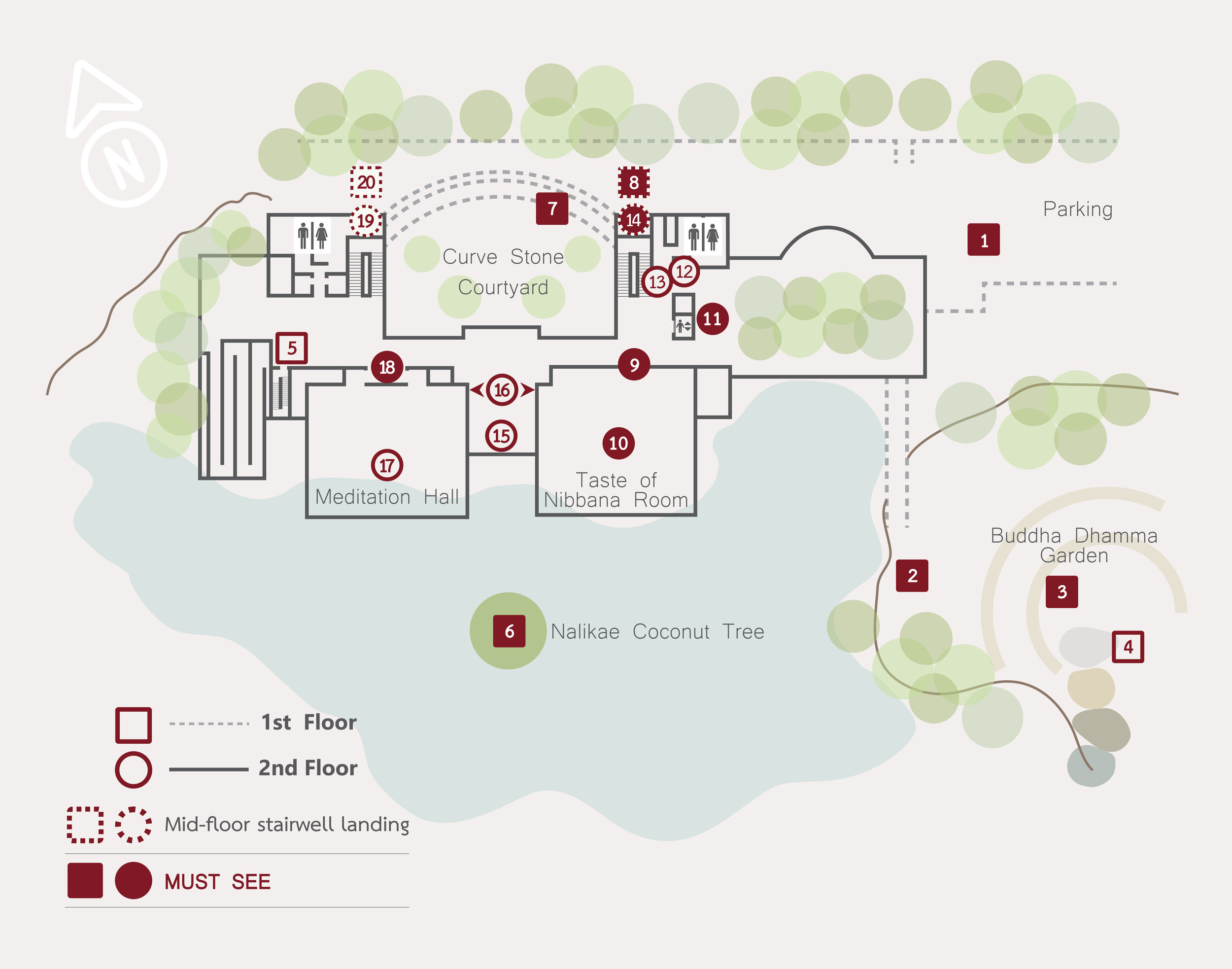Grandma and Grandpa’s Beans and Sesame
A Dependent Origination folktale
This artwork depicts a widely told ancient Thai folktale, recounted here as told by Buddhadasa Bhikkhu.
This story begins when a grandma and grandpa started growing beans and sesame. They told their grandchildren to guard the crops and to chase away the birds and crows. However, the children neglected their duty and went off to play instead. The birds and crows came and fed on the beans and sesame, thus creating a problem.
Afraid of being scolded and punished by their grandparents, the children went to a hunter and begged him to chase away the birds and crows with his bow, but the hunter refused to help. The children then sought help from a mouse, a cat, a dog, a hammer, a fire, some water, the river bank, an elephant, and some fruit flies. All of them refused to help, claiming it was none of their business.
The problem could not be solved until the fruit flies volunteered to fly into the elephant’s eyes. This caused all the others to change their minds as well. The elephant agreed to destroy the river bank. The river bank agreed to displace the water. The water agreed to put out the fire. The fire agreed to burn the hammer. The hammer agreed to hit the dog’s head. The dog then agreed to bite the cat. The cat agreed to catch the mouse. But when the mouse agreed to bite the hunter’s bow string, the hunter finally agreed to chase away the birds and crows with his bow, putting an end to the problem. The grandchildren were saved from the suffering of being punished by their grandparents.
Buddhadasa Bhikkhu explained that this folktale is a metaphor for Specific Conditionality (Idappaccayata) and Dependent Origination (Paticcasamuppada), which is the essence of the Buddha’s Enlightenment. Specific Conditionality and Dependent Origination refer to the law of nature which says that all things are interconnected and arise from causes and conditions, and that mental processes co-arise in a series of twelve causal links. These twelve interconnected links in Dependent Origination consist of: ignorance; volitional formations; consciousness; mind and matter; six sense-bases; contact; feeling or sensation; craving; clinging or attachment; process of becoming; birth; and decay and death.
Dependent Origination flows in two directions. The first direction, called direct Dependent Origination, is forward and results in suffering. The other direction, called Dependent Extinction, is in reverse and leads to the cessation of suffering. The former direction is compared to the situation in the story wherein each of the characters refused to act, which caused problems and suffering. The latter direction is compared to how all the characters, starting from the fruit flies, agreed to do their part one after another, thus putting an end to the problems and suffering.
Note: This story is also depicted in fine traditional Thai lacquer in the Ordination Hall of Wat Phra Chetuphon Vimolmangklararm (Wat Pho), Bangkok; and murals in the Spiritual Theatre at Suan Mokkh Monastery in Chaiya, Surat Thani Province.



